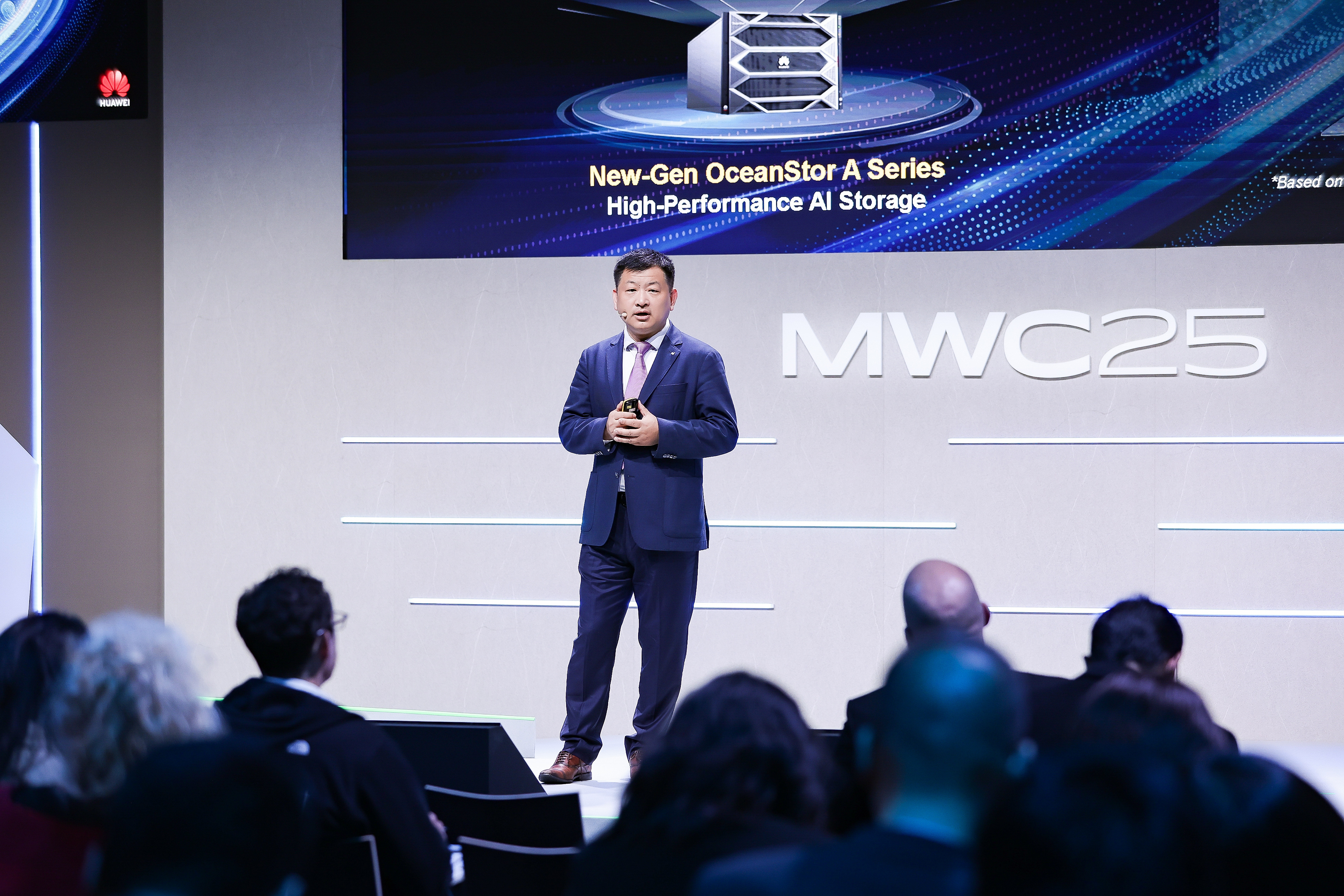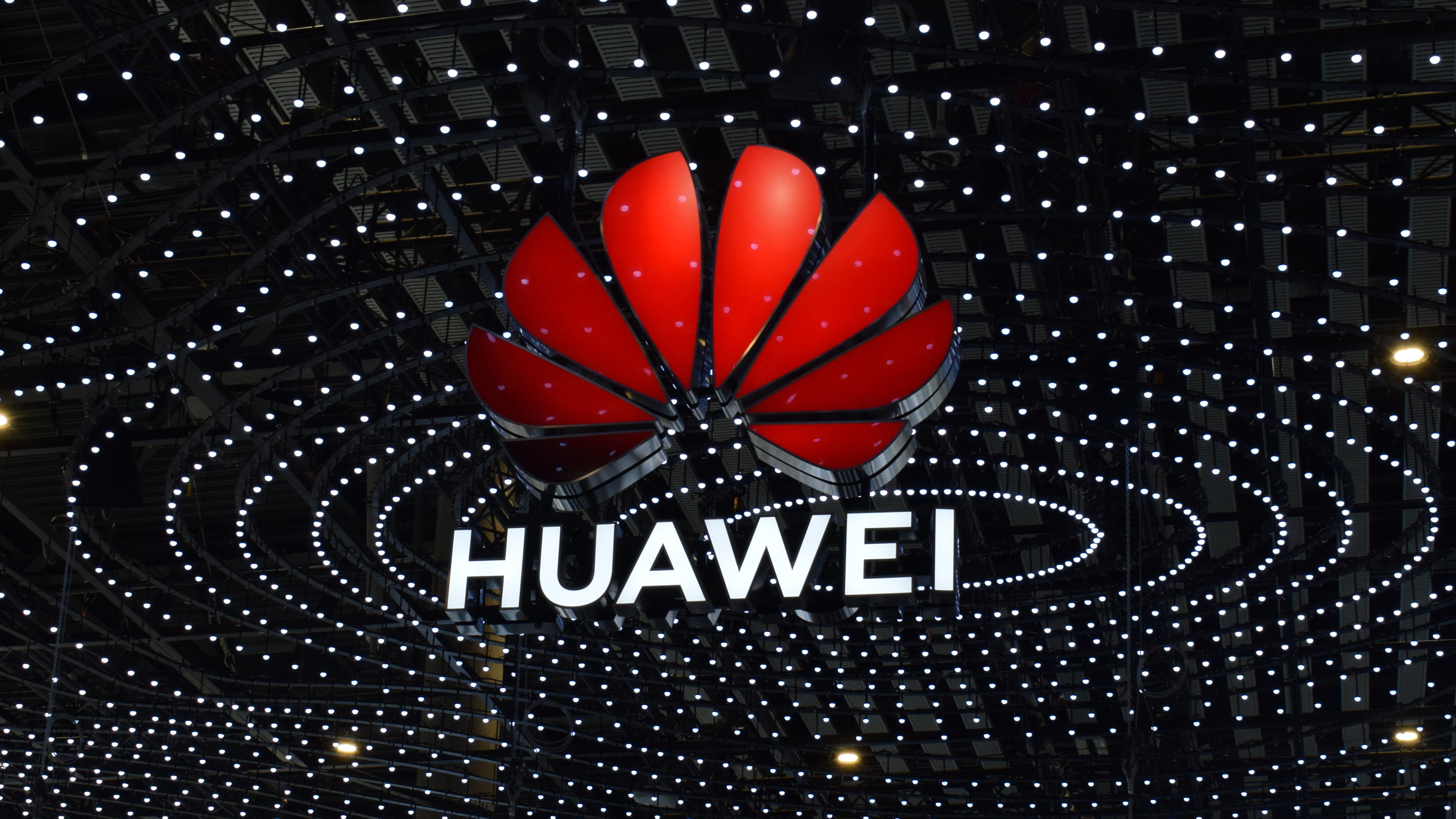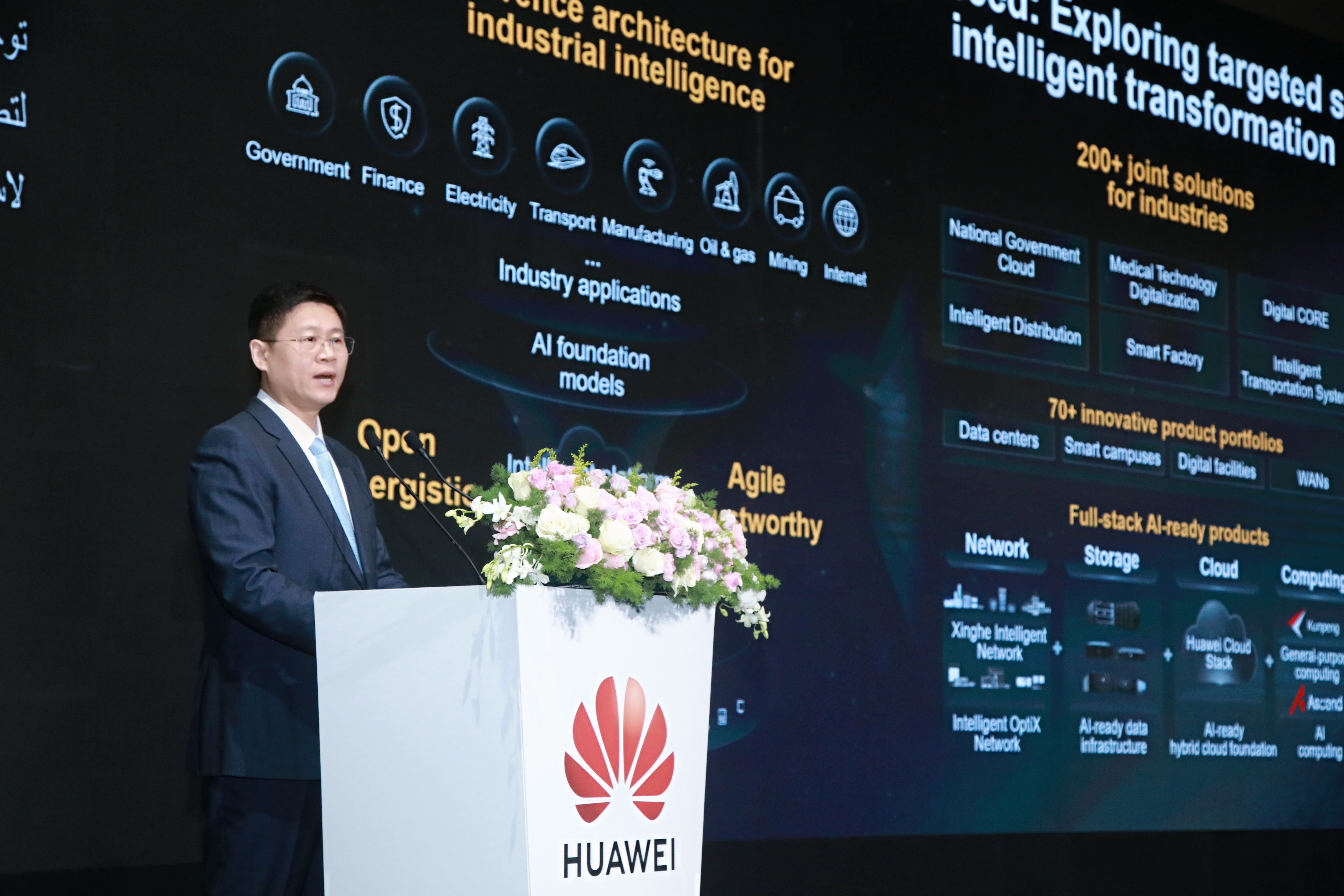Huawei’s Peter Zhou on the future of data storage to accelerate business digital transformation
Storage in the era of AI will create new challenges for cold and warm data

Artificial intelligence (AI) would not be possible without the technological advancement of data storage. But, now, AI is forcing us to question whether our current data storage capabilities are enough to handle its ever-expanding possibilities.
Huawei and the industry need to grasp the changes that AI brings to data storage, and it needs to do so very quickly, according to Peter Zhou, vice president of Huawei and the president of the data storage product line.
“When digitization started, data became information – as in data was being recorded, digitalized,” Zhou says. “People started to use big data to dig out the knowledge from the data. And then AI comes, which is where I think data will become ‘intelligence’.”
Huawei is a leading global provider of data storage products and services, and it emphasizes the importance of on-demand and ubiquitous storage, especially with the changing needs of data storage. Businesses now expect extensive convergence, adaptability, and a future-proof design for their storage architecture. Not to mention solutions that fit with their sustainability commitments.
To this end, Huawei provides a wide range of data storage products, with its New-Gen OceanStor Dorado Converged All-Flash Storage, OceanStor Pacific Scale-Out Storage, and OceanProtect Backup Storage. The tech company also offers a Data Management Engine (DME), and DCS AI Solution.
What’s more, Huawei also looks at what it calls ‘scenario-specific solutions’, which are essentially about designing and building tools that can be tailored to its customers' needs. A good example would be its container storage service for new application deployment, or its ransomware protection storage solution.
The value of data
For its data storage business, Huawei has over 26,000 customers from more than 150 countries and regions – protecting and using some 30,000 PB of data. These are customers that include healthcare providers, larger manufacturing firms, and even governments.
Huawei says its customers are suggesting that their data is increasing every year because of AI. These businesses have to store their data for much longer for training purposes. So the data itself - and its value - is increasing. As such, the demand for highly efficient data storage solutions is also rising.
Not so long ago, a petabyte of data would roughly take up a whole rack within a data center, but we are seeing multiple volumes of petabytes within a similar space. And yet still the demand is increasing with AI.
“The importance is getting higher and higher,” Zhou says. “By now everyone understands each country, each person, really cares about their data – data becomes essential. We believe that data storage will be more and more important. That’s the vision, so why not put more money into it to meet the requirements of the future.”
Here, Huawei is doing what Zhou says, with an extensive program of research and development for data storage. Huawei data storage has 12 centers for R&D and 8,000-plus R&D engineers. And that also includes 3,200-plus patents around the world.
“We need to keep developing the new generation of data storage,” Zhou says. “If you keep using the conventional data storage, the system still works, but with low efficiency. And that also means no commonization where only richer guys can do AI - which is not good.”
The warm data challenge
Typically, we see data in three ways: hot data, which is constantly in use. Warm data, which is stored but regularly retrieved and used. And finally, cold data, which is what we archive, often for many years.
“I personally believe, cold data will get smaller and smaller,” Zhou explains. “Warm data will get bigger and bigger. The reason is that all data is an asset, or knowledge, or intelligence. When AI comes, it will need to revisit not just current data, but also historic data. Which means the cold data, that portion will get smaller as the value gets higher and higher. The warm data portion will get bigger and bigger. And then the problem will be how to store the warm data. If warm data gets bigger, can solid-state drives (SSD) accommodate it? I personally don’t think it’s very suitable because of the price.”
High-capacity hard disk drives (HDD) are what we use to accommodate warm data, but the problem here is that HDD isn’t good for energy-saving. As Zhou puts it, HDD “keeps running”, and it has to keep running, never sleeping, if you will, because HDD lifespans are simply not long enough. So it will keep running and continue to waste energy. It’s worth pointing out that building HDDs is also a high-energy process.
“Considering the life span of HDD is about four or five years, and SSD is ten years more, so the whole industry needs to work out a new technology or storage media to accommodate the increase in warm data,” Zhou says. “I keep my eye on these developments because, in my opinion, HDD is not the final answer.”
For now, Huawei is answering the demands of current data storage needs with AI-ready data storage. These include the New-Gen OceanStor Dorado Converged All-Flash Storage for mission-critical production workloads and OceanStor A Series High-Performance AI Storage for AI Model Training and Inference.
The Huawei OceanStor Pacific All-Flash Scale-Out Storage, which is for mass data storage, provides industry-high density and low power consumption. With an exabyte level (equal to 1,000 petabytes) of scalability. For data protection, Huawei has also launched its OceanProtect All-Flash Backup Storage, which promises five times faster data recovery than industry alternatives.
For more details about Huawei’s data storage offerings, visit: https://e.huawei.com/en/products/storage
Get the ITPro daily newsletter
Sign up today and you will receive a free copy of our Future Focus 2025 report - the leading guidance on AI, cybersecurity and other IT challenges as per 700+ senior executives
ITPro is a global business technology website providing the latest news, analysis, and business insight for IT decision-makers. Whether it's cyber security, cloud computing, IT infrastructure, or business strategy, we aim to equip leaders with the data they need to make informed IT investments.
For regular updates delivered to your inbox and social feeds, be sure to sign up to our daily newsletter and follow on us LinkedIn and Twitter.
-
 Bigger salaries, more burnout: Is the CISO role in crisis?
Bigger salaries, more burnout: Is the CISO role in crisis?In-depth CISOs are more stressed than ever before – but why is this and what can be done?
By Kate O'Flaherty Published
-
 Cheap cyber crime kits can be bought on the dark web for less than $25
Cheap cyber crime kits can be bought on the dark web for less than $25News Research from NordVPN shows phishing kits are now widely available on the dark web and via messaging apps like Telegram, and are often selling for less than $25.
By Emma Woollacott Published
-
 The role of AI and cloud in true digital transformation
The role of AI and cloud in true digital transformationSupported Content Both cloud computing and AI technologies are vital to pushing your business forward, and combining them in the right way can be transformative
By Keumars Afifi-Sabet Published
-
 Doing business under US sanctions: a Huawei success story
Doing business under US sanctions: a Huawei success storyAnalysis Doubling down on R&D, diversifying its business, and seeking out ripe new markets – the resurgence of Huawei carries lessons for all businesses
By Bobby Hellard Published
-
 Huawei empowers SMEs through digital and intelligent transformation
Huawei empowers SMEs through digital and intelligent transformationSponsored Content Huawei launches new solutions and strengthens partnerships to drive digital transformation for SMEs, aiming to empower small businesses in the intelligent era
By ITPro Published
-
 Reshaping traditional industries with technology
Reshaping traditional industries with technologySponsored Content Industries worldwide are on the brink of a new era as technologies like AI, 5G-A, and cloud computing reshape the landscape
By ITPro Published
-
 Driving intelligent transformation: Huawei's vision for the future at Gitex Global 2024
Driving intelligent transformation: Huawei's vision for the future at Gitex Global 2024Sponsored Content Li Peng, corporate senior vice president and president of ICT sales and service at Huawei, outlines how the company is leading the way in intelligent transformation, building partnerships, and developing talent to drive global growth in the intelligent era
By ITPro Published
-
 Global digitalization index (GDI) in-depth analysis
Global digitalization index (GDI) in-depth analysisSponsored Content As digital technologies reshape industries and redefine global economies, Huawei’s Global Digitalization Index (GDI) 2024 offers a detailed analysis of how nations can leverage ICT to accelerate growth
By ITPro Published
-
 Striding towards the intelligent world
Striding towards the intelligent worldSponsored Content As global industries rapidly shift gears from digitalization to digital-intelligent transformation, data storage emerges as the critical driver of this evolution
By ITPro Published
-
 BT says it needs more time to remove Huawei equipment from UK networks
BT says it needs more time to remove Huawei equipment from UK networksNews The company has until January 2023 to remove the Chinese operator’s equipment in its core network, but has now asked the government for an extension
By Zach Marzouk Published
